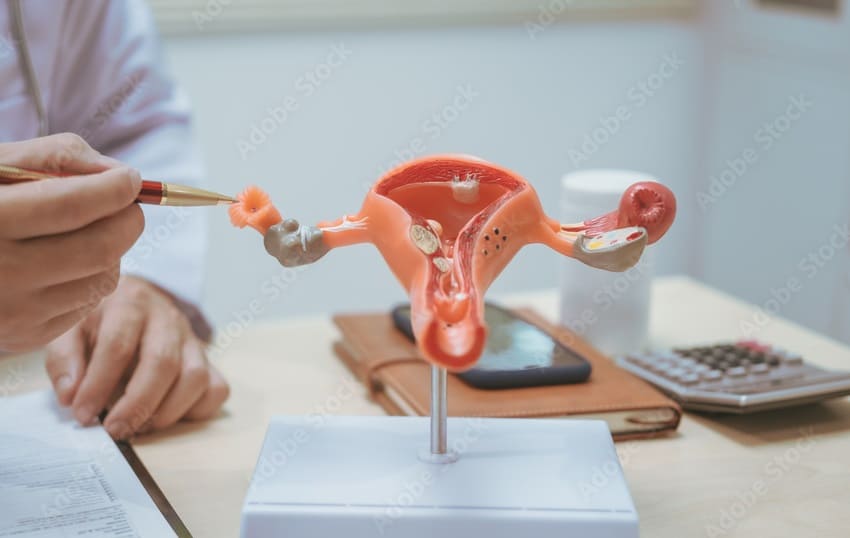We often associate heatwaves with sunburns, fatigue, and power outages. But what many don’t realize is that extreme heat can silently disrupt reproductive health, affecting fertility, menstrual cycles, pregnancy outcomes, and even hormone balance. With climate change bringing longer and more intense heatwaves, this isn’t just a seasonal concern—it’s a public health issue. Let’s explore how rising temperatures can affect reproductive health for people of all genders—and what you can do to protect yourself.
How Extreme Heat Affects Reproductive Health
1. Reduced Fertility in Men
Heat has a direct effect on testicular function. Sperm production (spermatogenesis) needs cooler temperatures than the rest of the body. Exposure to high ambient heat, tight clothing, or prolonged sitting in hot environments can:
- Lower sperm count
- Decrease sperm motility (movement)
- Alter sperm morphology (shape)
- Increase oxidative stress in the testes
Scientific insight: Studies show that men exposed to high temperatures (e.g., bakers, welders, factory workers) often have lower sperm quality compared to those in cooler environments.
2. Ovulation Disruption in Women
Extreme heat can interfere with the hypothalamic-pituitary-ovarian (HPO) axis, which regulates ovulation. It can:
- Alter levels of LH (Luteinizing Hormone) and FSH (Follicle Stimulating Hormone)
- Delay or suppress ovulation
- Worsen symptoms of PCOS
Hormonal imbalances caused by heat stress can make it harder for women to conceive, especially if they already have underlying reproductive issues.
3. Increased Pregnancy Risks
Pregnant individuals are more vulnerable to heat-related complications because their bodies are already working overtime to support fetal development.
Potential risks include:
- Preterm birth: Dehydration and heat stress can trigger early labor.
- Low birth weight: Chronic exposure to high temperatures may restrict fetal growth.
- Preeclampsia: Heat can increase blood pressure, a major concern during pregnancy.
- Stillbirth: Some studies suggest a slight but significant increase in risk during heatwaves.
The placenta’s function is sensitive to thermal stress. When body temperature rises, it affects blood flow to the uterus and placenta, potentially impairing fetal development.
4. Menstrual Irregularities and Discomfort
Women may notice irregular cycles or intensified PMS symptoms during periods of intense heat. This can be due to:
- Heat-induced stress affecting hormone levels
- Dehydration impacting blood flow and hormone transport
- Poor sleep quality (due to hot nights) affecting menstrual health
Increased inflammation and altered cortisol levels during heatwaves may worsen conditions like endometriosis or dysmenorrhea (painful periods).
5. Lower Libido and Sexual Health Issues
Let’s be honest—feeling sweaty, tired, and irritable isn’t exactly romantic. But there’s more to it:
- Heat increases cortisol (stress hormone) and decreases testosterone and estrogen.
- Dehydration reduces blood flow, including to reproductive organs.
- High temperatures can lower energy, affect mood, and disrupt sleep—all of which impact libido and performance.
Tips to Protect Reproductive Health During Heatwaves
Thankfully, there are simple but effective ways to counter the effects of extreme heat. Here’s how:
1. Hydrate More Than You Think You Need
- Aim for 8–12 glasses of water daily, more if you’re sweating a lot.
- Add electrolytes (coconut water, ORS) if you’re feeling drained.
- Eat high-water foods like watermelon, cucumbers, oranges, and lettuce.
2. Dress Cool—Literally
- Avoid synthetic fabrics that trap heat.
- Go for cotton, linen, or moisture-wicking activewear.
- Men: Wear loose underwear to prevent heat buildup around the groin.
3. Limit Sun Exposure During Peak Hours
- Stay indoors or in shaded areas from 11 a.m. to 4 p.m.
- If you need to go out, wear a hat, sunglasses, and broad-spectrum sunscreen.
4. Skip Hot Tubs, Long Showers & Sauna Visits
- These can raise core body temperature to unsafe levels, especially during ovulation or pregnancy.
- Opt for lukewarm showers and avoid steam rooms when it’s already hot outside.
5. Practice Stress Relief
- Try deep breathing, meditation, or gentle yoga indoors.
- Stress management is crucial for hormone regulation, especially during heat-induced fatigue.
6. Eat Cooling, Hormone-Friendly Foods
- Include leafy greens, berries, flax seeds, and whole grains.
- Avoid processed foods and excess caffeine or alcohol, which can dehydrate you.
7. Prioritize Rest and Sleep
- Use light bedding and keep your room cool with fans or A/C.
- Sleep in moisture-wicking fabrics.
- Sleep helps your body recover from thermal stress and maintain hormonal balance.
8. Consult a Doctor If You’re Planning Pregnancy
If you’re trying to conceive during the summer or live in a hot climate:
- Ask your OB/GYN about the safest times and strategies.
- Schedule regular checkups to monitor hormone levels and reproductive health.
Final Thoughts
The effects of extreme heat go far beyond sunburns and sweaty shirts. It’s quietly influencing our hormones, fertility, and overall reproductive health—especially for those already navigating the journey of conception or pregnancy.
But don’t panic! With the right awareness and care, you can stay cool and stay in control of your reproductive health. The body is remarkably adaptive—and with a little help from hydration, shade, and self-care, you’ll be better prepared for whatever the climate throws your way.
Also Read:
